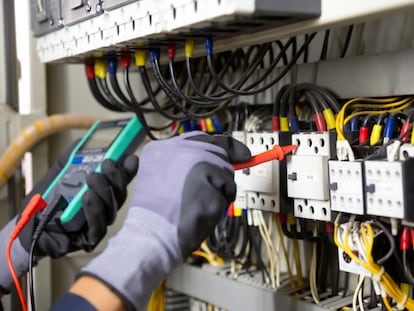A Governor, Three Ministers and their Burden

By Chido Onumah (*)
“At the moment, 70 per cent of Federal Government’s revenue goes for payment of salaries and entitlement of civil servants, leaving 30 per cent for development of 167 million Nigerians. That means that for every naira government earns, 70 kobo is consumed by civil servants. You have to fire half of the civil service because the revenue of the government is supposed to be for 167 million Nigerians. Any society where government spends 70 per cent of its revenue on its civil service has a problem. It is unsustainable,” Sanusi told his audience, adding that the country did not need 109 senators and 360 representatives to make laws. He called for an end to the “wastage” of funds on the maintenance of 774 Local Government Area chairmen, their aides, councillors and other appendages of the third tier of government and the scrapping of states that are viable.
According to Ogene, the National Assembly had a total budget of N150bn ($1bn) in 2012 to cater for 360 House members, 109 Senators, thousands of civil servants and political aides while the CBN had over N300b ($2bn). On Sanusi’s suggestion to cut the civil service by half, Ogene was amazed that “a manager of the economy would come up with such a proposal in the face of the socio-economic challenges of today”. Coming from a member of a do-nothing House that wears scandal as a badge of honour, Ogene must have some cojones to lecture us about “socio-economic challenges”. At the last check, Ogene and his colleagues cart home so-called quarterly constituency allowance (read security vote, because you hardly can find any constituent that benefits for that allowance) to the tune of N43m ($286,000).
Clearly, some of the positions that Sanusi canvassed are constitutional matters. Nothing can be done about those issues unless Sanusi himself supports the call for a genuine constitution of “we the people” or better still the restructuring of Nigeria. But on the call for the pruning of the civil service, you have to agree with Sanusi if you have encountered our civil servants or had the misfortune of visiting, for example, the Federal Secretariat in Abuja.
A typical day at the secretariat reminds you of a shopping mall with staff milling around aimlessly, while those in the offices are busy channel flipping. With “ghost workers” everywhere, it is difficult if not impossible to get anyone to attend to your enquiries. Late last year, the Head of Service of the Federation, Isa Bello Sali, informed us that the government had uncovered 71,135 ghost workers on its payroll which cost the country N28bn ($186m) annually. Undoubtedly, the civil service is bloated and needs to be trimmed for efficiency. But beyond this revelation, there is nothing spectacular about Sanusi’s call. The rot and inefficiency in the civil service is part of the rot and inefficiency in the larger society. It is emblematic of a culture of entitlement, cronyism and waste of which Sanusi is an integral part.
In 2011, there was an allegation of impropriety in a land buy back scam in which the names of President Goodluck Jonathan, the Attorney General of the Federation, Mohammed Adoke, and Lamido Sanusi featured prominently. It was a bizarre story the mainstream media refused to touch. The sordid details are chronicled in my book, Time to Reclaim Nigeria. We have the intrepid online publication, Saharareporters to thank for that amazing investigative report. Days after Saharareporters published the story, the CBN, in a contemptibly inadequate response, acknowledged that it paid almost N20bn ($133m) for a piece of land, originally owned by a government agency, NITEL, to build “a world class conference centre”.
It seems our rulers know a thing or two about world class event centres because while Sanusi was busy dreaming of a lean, efficient and effective civil service, news came that the government was planning to build another banquet hall for Mr. President at the cost of N2.2bn ($15m). “We noticed that it (existing hall) is inconveniencing; it is not in tandem with what is outside the country. Even smaller countries have better Banquet Halls near their Presidential residences,” the Minister of the Federal Capital Territory (FCT), Bala Mohammed, said in defence of the scandalous approval for the unbudgeted project by the Federal Executive Council (FEC) at its last meeting. Again, this hollow argument about what obtains in other countries. It seems our rulers are too blind to see the good network of roads, constant electricity and reliable infrastructure in other countries. That our youth, the future of this country, migrate in droves to smaller countries like Ghana for university education is certainly not of concern to Mr. Mohammed.

At a budget defence last year, the minister told lawmakers why their leaders needed new residences outside their current Apo Legislative Quarters residences. “We were there on inspection and so we cannot guarantee the safety and security of principal officers of the National Assembly who take decisions on very serious and sometimes critical issues that may impinge on the sensibilities, perception and feelings of others. We must as a government protect the principal officers of the National Assembly”, the minister said.
These new, secure and luxury homes will cost about N1bn ($7m) each for the Senate President and the Speaker. Add another N1bn ($7m) for the homes of their deputies and do the math. The minister did not disappoint during his 2013 budget defence. His ministry, he confirmed, will spend N2bn ($13m) in 2013 as part of the N7.1bn ($47m) approved for a “befitting” residence for the Vice President, Namadi Sambo. The week in review ended with an affront from our oil goddess, Diezani Alison-Madueke, who clarified why the Ministry of Petroleum Resources would spend N6.2bn ($41m) on the Petroleum Industry Bill awareness campaign. The less said about this the better.
These incidences highlighted, a drop in the ocean of brazen pillage currently going on in the name of governance in the country, represent the face of the decadent culture in Nigeria that we need to do away with quickly. There is something sinister about our democracy. It is that our so-called elected represented see their position as an opportunity to get their share of the proverbial national cake. It is, therefore, not surprising that the highest decision-making body in the country, the FEC, as well as MDAs have become a veritable money laundering platforms in the guise of contract awards.
While Nigerians die in their dozens every day from preventable diseases, poverty, terror and associated ills, it is this brazen plunder that should concern the likes of Sanusi and Okonjo-Iweala who still have the scruples to talk about reducing the cost of governance.
(*) Chido Onumah. Coordinator, African Centre for Media & Information Literacy. Abuja, Nigeria www.africmil.org conumah@hotmail.com
Tu suscripción se está usando en otro dispositivo
¿Quieres añadir otro usuario a tu suscripción?
Si continúas leyendo en este dispositivo, no se podrá leer en el otro.
FlechaTu suscripción se está usando en otro dispositivo y solo puedes acceder a EL PAÍS desde un dispositivo a la vez.
Si quieres compartir tu cuenta, cambia tu suscripción a la modalidad Premium, así podrás añadir otro usuario. Cada uno accederá con su propia cuenta de email, lo que os permitirá personalizar vuestra experiencia en EL PAÍS.
¿Tienes una suscripción de empresa? Accede aquí para contratar más cuentas.
En el caso de no saber quién está usando tu cuenta, te recomendamos cambiar tu contraseña aquí.
Si decides continuar compartiendo tu cuenta, este mensaje se mostrará en tu dispositivo y en el de la otra persona que está usando tu cuenta de forma indefinida, afectando a tu experiencia de lectura. Puedes consultar aquí los términos y condiciones de la suscripción digital.




























































